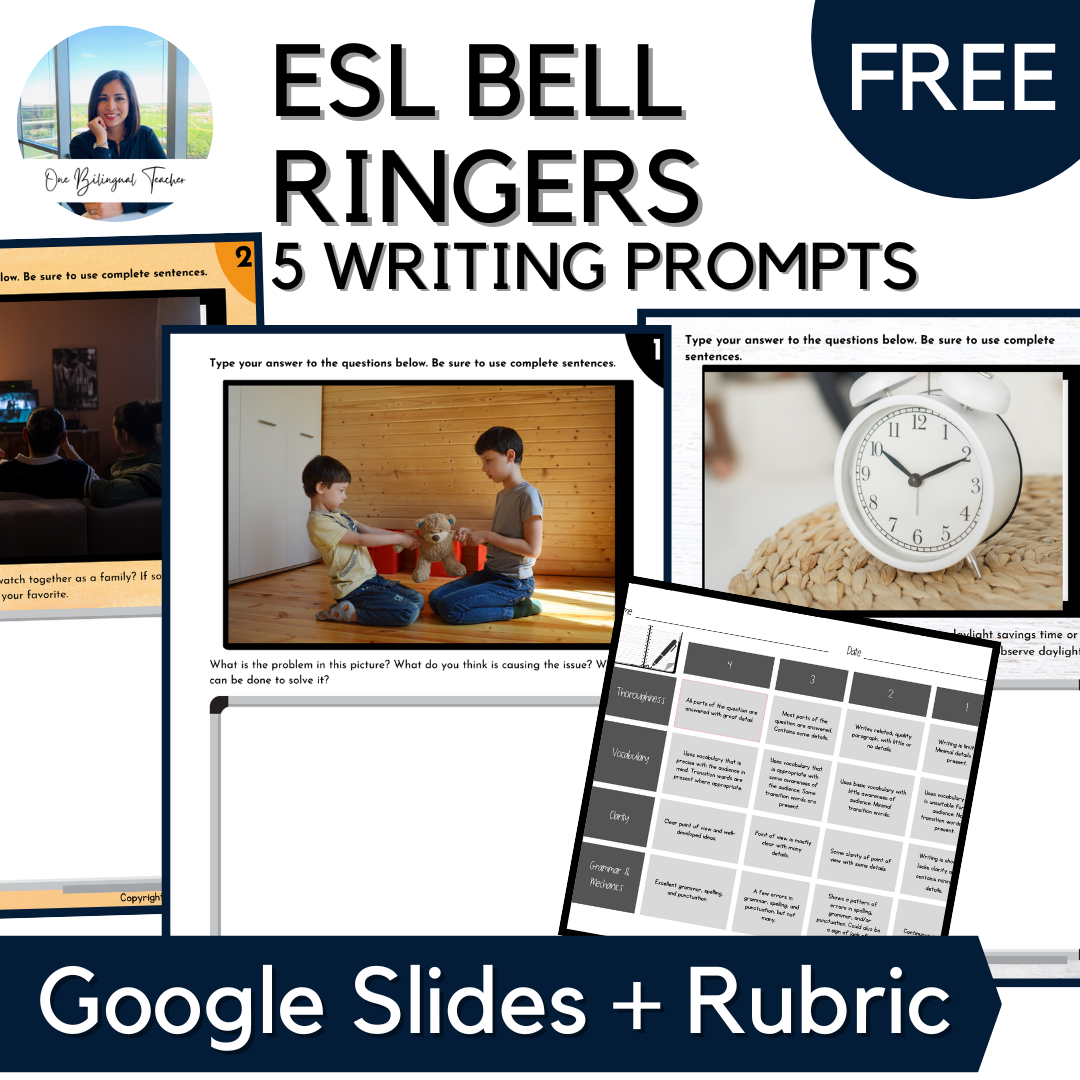10 Authentic Writing Practices for ESL Students in Secondary English Classrooms
If you're working with ESL (English as a Second Language) students in your classroom, you're well aware of the importance of providing authentic writing opportunities. Authentic writing allows students to apply their language skills in real-life contexts, making the learning process more engaging and meaningful. In this blog post, you’re going to explore ten effective ways to incorporate authentic writing practice into your secondary English classroom.
1. Pen Pals or Email Exchanges
Connecting your English learners with peers from around the world is an excellent way to kick off authentic writing experiences. Encourage your students to exchange letters or emails with their international counterparts. This not only promotes authentic communication but also gives students the opportunity to learn about different cultures. Join Facebook groups in your grade level/subject area to find other teachers who are willing to partner up with you.
2. Journaling
Journaling is a timeless and versatile writing activity. Implement regular journaling sessions where students can jot down their daily experiences, thoughts, and feelings. It's a personal and self-reflective practice that encourages self-expression and fluency in writing.
3. Blogging
In today's digital age, blogging has become a powerful medium for authentic writing. Setting up a classroom blog or having students create their own allows them to write about topics they're passionate about, share their opinions, and interact with a wider online audience. It's a great way to foster authentic online writing experiences while also honing digital literacy skills.
There are many platforms you can use to do this. You can use Google Sites or Edublogs. I’ve even done one in Google Slides where everyone had their own deck and they were all linked to a Google Doc. Students would click on each other’s links to read and comment on their classmates’ blog posts.
4. Letters to Public Figures
Empower your students to voice their opinions and engage with real-world issues by writing letters to public figures, local politicians, or community leaders. Encouraging them to express their thoughts on current events or community matters is an excellent way to make writing more meaningful. Everyone has an opinion and this is a great way to get young people involved in expressing it.
5. Write Reviews
Writing reviews is a practical and engaging form of authentic writing. Have students write reviews for books they've read, movies they've watched, restaurants they've dined at, or products they've used. This not only allows them to express their opinions but also hone their persuasive writing skills. To make it even more real, have them email it or mail it to the place they’ve reviewed!
6. Research Projects
Research projects provide a structured approach to authentic writing. Assign projects on topics that pique your students' interest, and let them dive into gathering information, writing reports, and presenting their findings. Try this All About My Country Research Project for ESL and Multicultural Studies Classes. Research projects mirror the process of real-world research and writing and encourages in-depth exploration of their chosen subjects. You can even select themes such as Hispanic Heritage, Thanksgiving, or Black History. The possibilities are endless!
7. Creative Writing Competitions
Encourage your students to showcase their creativity and writing skills by participating in local or national creative writing competitions. These competitions provide opportunities for students to share their work with a broader audience and receive recognition for their literary talents. You can also make it a competition within the classroom or your different classes. Students can read their stories out loud and the class can be the judge! It may be hard at the beginning, but once they get started, they’ll not want to stop!
8. Write Business Letters
Practical writing experiences are essential, and writing business letters is a great example. Have your students compose letters to local businesses, inquire about products or services, or express their concerns. This exercise familiarizes them with professional writing and communication. High school students can also write to various universities to inquire about their majors, tuition, and financial aid.
9. Community Newsletters
Collaborate with local organizations to create a community newsletter. Students can contribute articles, stories, or announcements that will be shared within the community. This authentic writing experience not only instills a sense of purpose in your students but also encourages community involvement.
10. Mock Job Applications
Prepare your students for future careers by having them create mock job applications. This includes crafting a resume, writing a cover letter, and responding to job listings. Such an exercise provides authentic professional writing practice and equips them with valuable skills for their future endeavors.
In a Nutshell
Incorporating these ten authentic writing practices into your secondary English classroom will empower your ESL students to develop practical language skills, explore real-world topics, and engage with a broader audience. Authentic writing experiences not only encourage language proficiency but also instill the confidence to communicate effectively in various contexts.



